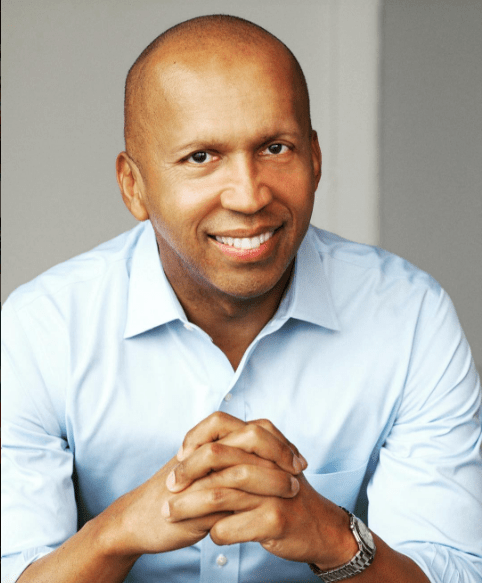By Reese Bobo
On Thursday, students seemed a bit more awake, and teachers a bit more excited than usual.
With good reason, too. Bryan Stevenson was set to make his visit to campus that night. Author of SMU’s summer common reading book, Just Mercy, having a New York Times bestseller under his belt is seemingly minuscule next to his extensive list of other accomplishments. Founder of the Equal Justice Initiative and current New York University professor at the graduate school of law, Stevenson has frequented the Supreme Court, and recently won a landmark case ruling life-without-parole sentences for children 17 or younger unconstitutional. Stevenson has won many human rights awards for his extensive work with prisoners on death row, including the MacArthur Foundation “Genius” Prize and the National Medal of Liberty, as well as earned 16 honorary degrees from various universities.
Needless to say, it was an honor for the student body to hear Stevenson speak.
A number of high schools made the trek to SMU to listen to Stevenson; for about an hour, dazed teenagers excitedly filtered up the stairs and through McFarlin’s doors. However, despite the large number of high schoolers, even more SMU students and faculty members showed up to see what Stevenson had to say. McFarlin was packed completely full, and you could hear the audience buzzing with excitement—as well as feel the politically charged atmosphere.
https://www.instagram.com/p/BLhoHdKBXZX/?tagged=smutate
After a brief introduction, the crowd met Stevenson with a standing ovation. He began by talking about his childhood, which hugely influenced his decision to do work in human rights. He explained his first encounter with a death row prisoner when he was in law school, and touched the crowd with how normal and relatable the man had been. One of Stevenson’s mantras is that every person is greater than the worst thing they’re ever done, and he very effectively drove that point home through anecdotes of his interactions with the prisoners.
Stevenson continued to cycle through short stories about his work, but then broadened his talk to current social issues, especially focusing on racism and police brutality. Recalling his first experience with racism as a child, in which white parents greeted him and his sister with crass insults and hate language when they went to swim in a hotel pool, he addressed the fact that the country still has a long way to go on the road to eliminating racism. As he got more animated, preaching about the injustices of prejudice against minorities, and lamenting the fact that many people of color are—for good reason—fearful of police encounters, Stevenson began to receive woops and applause from the crowd.
As he made more and more statements calling for social change, the talk increasingly became less of a lecture, and more of a conversation; a back and forth between Stevenson and the crowd. Stevenson drove home the fact that other countries memorialize their tragedies; Germany, for example, memorializes the Holocaust, turning concentration camps into historic protected areas which one can visit, and littering cities with educational plaques on what went wrong. The US, however, seems to avoid the genocidal qualities of slavery, lacking similar memorials. When he announced his initiative to place a marker at every lynching site in the south, he received his largest round of applause yet, even getting a “Hallelujah!” from a woman in the crowd.
At the conclusion of his lecture, Stevenson received a well deserved, extended standing ovation. A lively Q&A session followed, where Stevenson was able to interact with some members of the audience.
Needless to say, not everyone agreed with Stevenson’s stances on social issues. That, however, is why he so desperately needed to speak to the student body here at SMU. No matter what you’re political leaning is, it is important to have conversations and debate over problems such as modern day racism and the death penalty. The only way to learn new things, and to have the opportunity to change your or someone else’s views, is to begin talking about them. Clearly the US needs social change in some capacity, and talking openly is the only thing that will make that possible. Thanks to Bryan Stevenson’s lecture, we are now spearheading these conversations here at SMU.









